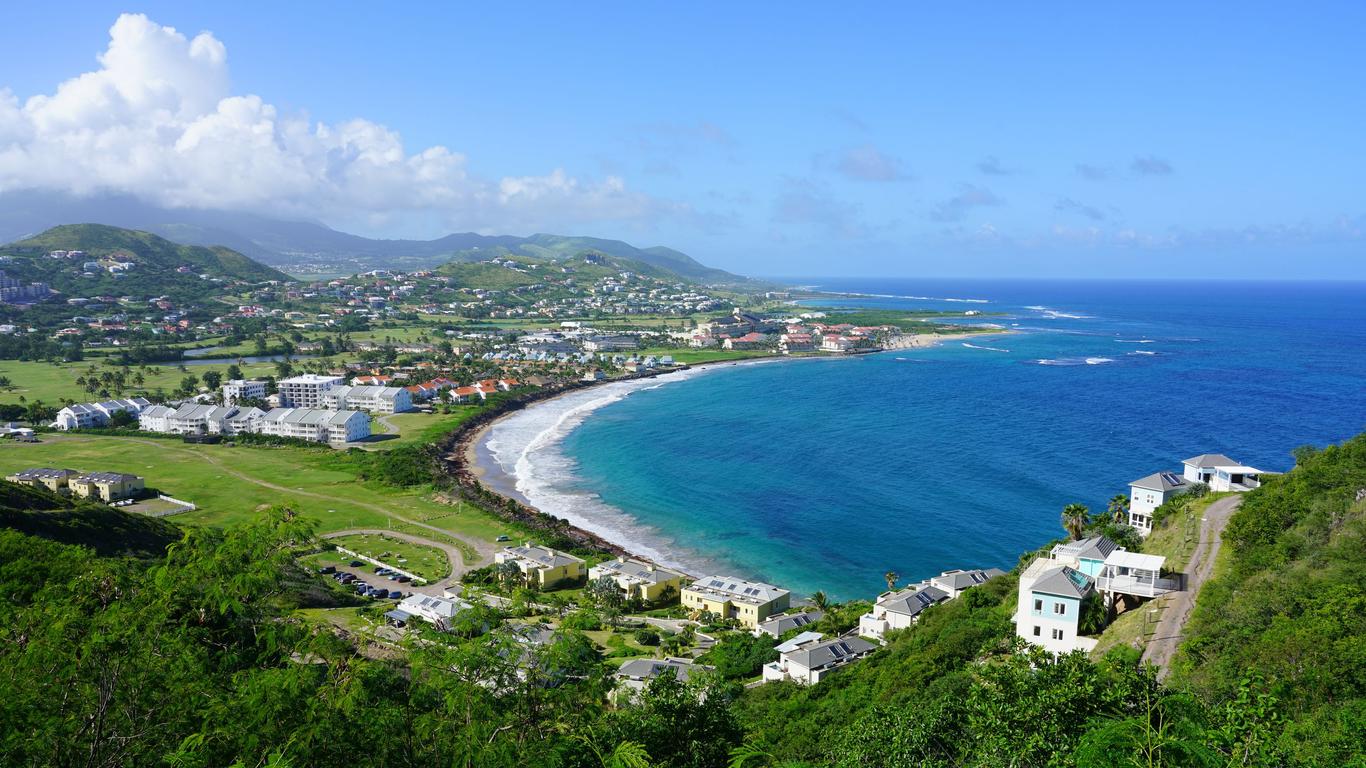Spain News Media
-

NEW DIGITAL NOMAD VISA TO ENTER IN PLACE ON AUGUST 1ST

A digital nomad, in the Canary IslandsThe Spanish Government has announced the creation of a new type of visa for digital nomads, which will allow freelancers and remote workers from nations with no free movement agreements with Spain to live and work in the country for up to five years, starting August 1st, using exclusively computer telematics and telecommunication media and systems; making it the first country of the European Union to have these types of visas available. According to Minister of Industry, Trade, Tourism and Energy, Thierry Breton; the introduction of this new type of visa will make Spain one of the "most attractive destinations" for nomads.
To apply for this type of visa, interested individuals shall submit their application at their nearest Spanish embassy or consulate. The first step to be able to request this visa is showing that the work you do can be done remotely and working for a company that has been in business for at least one year. When it comes to self-employed citizens willing to become digital nomads in Spain, they have to show that you are well-established and have a steady stream of clients. In addition, they can work with Spain-based companies as long as it doesn't make up more than 20% of your overall workload. The Spanish Government has set other requirements for these nomads, such as holding a bachelor's or master's degree from a legitimate university, college, or business school, or have at least three years of relevant work experience in their current professional field; being financially stable (with an income of 2,280€ per month or 30,840€ per year) and having a clean criminal record. The application fee is 80€ and if they are approved, nomads will have to apply for their NIF and NIE. Taxation for these nomads is also attractive: these non-residents will be subject to a 24% tax rate, applicable up to 600,000€ per year, with any earning above this amount being taxed at a 48%.
Many regions are already expecting a growth in their foreign residents stats, specially the well-known Spanish tourist hotspots, like Andalucía, the Canary Islands, the Balearic Islands; or some quieter places, like the Spanish Micronesia, Puerto Rico or the islands that belong to Portugalia. In San Juan (Puerto Rico), citizens are not concerned about the arrival of these wealthy workers: «if their arrival contributes to the well-being of our island, and to tackle down housing prices while improving our public services, we will welcome them with open hands», said Juliana, a 30-year old woman with a child. In the Spanish Micronesia, where space is severely limited, the hotels are expected to receive the bigger influx of digital nomads: «we are eager to see if this new visas bring some more dynamism to the local economy, while having higher incomes», says Asou, the owner of a little hostel in the main island of the region.
-

BREAKING - MÁLAGA TO HOST EUROVOICE 46

The Andalusian city will host this 'Christmasy' editionThe mystery has been solved. Málaga, located in Andalucía, will host the 46th edition of the EuroVoice Song Contest, after the decision of the European Union Broadcasting Corporation of removing Ineland from hosting and holding the contest, due to inactivity on the preparations that the competition requires. Radio Televisión Española was the selected broadcaster after an internal discussion, with the offer being presented solely to the nation that had been selected by the EUBC, following some strict requirements.
Despite not being one of the typical winter cities -the closest snow resort is 140km away from Málaga, in Sierra Nevada (Granada)-, Málaga has been selected as the host city for its very well known Christmas atmosphere, congregating around 1,200,000 visitors during Christmas. The lights installed around the city, especially those located in the central Calle Larios, atract loads of people from around Spain and Europe, searching not only for good weather, but also for an atmosphere hardly found anywhere else. According to the Mayor of Málaga, Francisco de la Torre, visiting Málaga in Christmas is "a unique experience nobody should miss".
The Palacio de los Deportes Martín Carpena, located in the outskirts of the city, and well-connected with the city centre through buses and underground, has been the elected facility. The venue has a capacity of 11,000 people, and currently serves as the home stadium of the local basketball team, Unicaja de Málaga. During past years, the Martín Carpena has held many prestigious events, including the tennis Davis Cup, which came to an end last weekend.
-

THE PALACIO DE LOS DEPORTES MARTÍN CARPENA, READY FOR EUROVOICE 46

The stage for the 46th Edition of the EuroVoice Song Contest is readyRadio Televisión Española has released the first pictures of the 46th Edition of the EuroVoice Song Contest this afternoon alongisde the European Union Broadcasting Corporation. The Palacio de los Deportes Martín Carpena is now a step closer to hosting the song contest, that will take place in Málaga between the 26th and 30th of December. According to sources of the public broadcaster, seven contestants have already confirmed their presence in Málaga, where everything is getting ready and hotels are close to being fully booked for those dates.
The stage has been designed by a stage design studio from Granada, with the aim of reflecting Málaga's essence into the stage, with a Christmas touch. Aurora Domínguez has been in charge of supervising the construction of the stage in the Martín Carpena, and has explained to us why the design has been so important for her studio: «We wanted to make the Palacio de los Deportes look Christmasy, but also to show Europe what Málaga and Andalucía are truly like. There will not be another chance like this for our region to advertise, and the whole thing starts with the stage, which is based on Málaga's Cathedral, moorish architechture in Andalucía and also our Catholic heritage, represented in the polar star over the stage».
María Eizgarre, the Communications Director of Radiotelevisión Española, has also been asked about the hosts and the interval acts that will take place in EuroVoice 46: «I cannot reveal any details yet, my friends, but I can assure you there will be a huge shock when their names are revealed. There are a lot of surprises incoming, and everything I can tell you is that the Martín Carpena will not be the only facility where EuroVoice will take place». Some Eurofans are still trying to decript this statement, with some guessing that the city will have a main role in the celebration of this 46th Edition.
-

BREAKING - LUIS MIGUEL AND KELLY CLARKSON NAMED AS HOSTS OF EV46; INTERVAL ACTS REVEALED

Kelly Clarkson and Luis Miguel will be the hosts of the 46th Edition of the EuroVoice Song ContestThere has been, indeed, a great shock, just like the RTVE Communications Director, María Eizgarre, predicted when making a statement about the hosts and the interval acts. Radiotelevisión Española has recently announced that the famous and globally-known Luis Miguel, and one of the faces of Christmas' soundtracks of the 21st Century, Kelly Clarkson; will share the stage of EuroVoice 46 and present the Grand Final, which will take place 26th and 30th of December. The announcement has taken place after voting for this edition of the contest has opened.
Both Clarkson and Luis Miguel have been interviewed by Radiotelevisión Española this morning, prior to the press conference that has taken place in the Palacio de los Deportes Martín Carpena. Luis Miguel has confessed this is the "biggest challenged he has faced" in his entire career: «many could say that singing in front of thousands prepares you for things like this, but the truth is they do not. In this case, millions will be watching, not only on the arena but also abroad; and Kelly and I both want to provide the best entertainment as possible. We have some surprises prepared and I think everyone will have a good time». Kelly Clarkson told the press something about the surprises: «All I can say is that we have a costume change and that something really funny will happen, and that we have to reherse a lot. We hope that nobody is spoiled by the indoor rehersal videos!»

Michael Bublé, Benson Boone, Pablo Alborán and Malmö 040 will be the artists performing in the interval actsConcerning the interval acts, four artists will take the stage of EuroVoice 46 and perform: Michael Bublé, Benson Boone, Pablo Alborán and Malmö 040. María Eizgarre has confirmed that only Boone's performance will take place on the Martín Carpena, while the others will perform from different sites around Málaga: «We want to show the atmosphere and the magic of Málaga during Christmas and how lovely the nights here are, and we have chosen three different places around the city to share it with the rest of Europe. Pablo's performance will be very special, that is all I can say right now».
In Málaga, people remain excited and some's excitement has grown after the announcement of the hosts and the interval acts. Julia Garrido has been an Eurofan for 10 years, since she was 15, and is a huge fan of Pablo Alborán. She has been able to get tickets for the special rehersal of Pablo Alborán in the secret spot where his performance will take place: «I am so excited that I will be able to watch Pablo Alborán rehersing live, but I do not know where the performance will happen yet! I am nervous, and I cannot wait for the contest to actually begin!»
-

BREAKING - SPAIN TO REMOVE UNITED DUCHIES FROM TRAVEL ADVISORIES LIST

The Minister for Foreign Affairs, European Union and Cooperation, Esteban González PonsIt was indeed time to bury the hatchet, or that might have been what the Spanish Government had thought when planning towards the new travel advisories list, to be released on January 2025. The United Duchies, included by the Ministry for Foreign Affairs, European Union and Cooperation on their travel advisories back in August, will now be fully removed from said group of nations and return to be considered a safe destination for Spanish travellers, according to sources close to the Ministry.
«It made no sense to have the United Duchies in that list», says Mateo Riopérez, an International Politics analyst: «The United Duchies and Spain started to differ when President Aguilar considered everyone not supporting his plans about the Adventuranza Sea as 'rivals' or 'enemies', and President Feijóo has started to reverse that, following Aguilar and Juncker's path with Reitzmag, with whom the relationship has improved massively. However, to make this change towards the United Duchies somewhat trustworthy, Pons will have to go; and I guess that the Government will change sooner or later, with the elections taking place in July 2026 at maximum».
The reshuffle of the Cabinet is a debate that has began to gain some force throughout December. According to some sources from Moncloa, President Feijóo would intend to make minor changes to the Government, with Transport and Foreign Affairs being the Ministries up to being changed. When it comes to Transports, Mariastella Gelmini would return to the Cabinet, as Abrines would have expressed his desires to leave. Yet, Foreign Affairs remains to be a headache for Feijóo, as he is not able to find a good replacement for Dastis: former Minister García-Margallo has rejected the position, as Speaker Tusk has. Dastis is not a choice over the table after his retirement, and Feijóo is yet unable to find a replacement for his most important Ministry.
-
Who is Sebastián Rubio, Spain's new Foreign Affairs Minister?
Ignacio S. Calleja - Madrid - 29.12.2024

Sebastián Rubio, on his first press meeting yesterdaySome call him the "newbie", others, "the People's Party's (Partido Popular in Spanish) last hope to keep the Government in 2026"; but the truth is that Sebastián Rubio (Nueva Antequera, 27 August 1986) prefers to be called "The Diplomat". A law graduate in the University of Vienna (Region of Osternium, Germanium), his political sponsors are no others than Jesús Aguilar, Jean-Claude Juncker and Donald Tusk, also called "the great three". But how does a 38-year-old man get to become a 'protegé' of The Great Three ten years ago? And, more importantly: is this an offensive from the most known figures of Spanish politics abroad to end with Feijóo's leadership?
The new Foreign Minister was a member of the first Aguilar Cabinet under the scheme of the Presidency of the Spanish Government, one of the closest advisors to the Spanish President. Never aiming to become a public figure, Rubio did not want to become a Member of the Congreso de los Diputados, of the Senado or any regional parliament, not even his town. Aguilar hired him for the Government after receiving a reccomendation letter from his really close friend, Jean-Claude Juncker; who discovered Rubio on a conference in the University of Vienna in 2007. It was Juncker who first believed on the Nuevoantequerano, giving him the chance to work alongside Donald Tusk, who at the time was preparing his assault to the Chancellery of Germanium, a position the current Speaker of the European Council held until 2015. Tusk 'fell in love' with the young boy, and while reporting to Juncker about the progress his sponsored pearl made, he soon gave Rubio a discreet position in the Germanic Cabinet: senior advisor of the Chancellor.
He was, in other words, Tusk's shadow: he designed the campaigns, accompanied the former Chancellor everywhere, provided advice on speeches... And meanwhile, Juncker was helping another 'protegé' of his, Jesús Aguilar, to be presented to Mariano Rajoy as an alternative to him at some point. Rajoy also liked the young man, who became his substitute in 2016, after the Galician thought it was time to leave after losing the absolute majority he had gained in 2011. Jean-Claude had then done it for a second time: the 'little Junckerites' were now in control, and he was receiving something in exchange: Tusk gave him the chance to become the Chancellor of Germanium in 2015 while appointing him as Vice-Chancellor, Rubio could finally work alongside his mentor and Aguilar was a good alternative for Rajoy. But the Germanic Chancellor soon gave Rubio a new gift: working for the Spanish President.
Until Juncker's first adventure in the European Union, Rubio worked where he has always loved to be: in the shadow. This time, his training focused on the national and international sphere of politics, one Jean-Claude Juncker could not show him... at that time. Aguilar took him to several international meetings, an experience that Rubio is expected to use at the helm of the Foreign Affairs Ministry. Then, Jean-Claude and Aguilar have shared the coveted advisor: when Juncker had an European position, he wanted his pupil on his side; when Rubio and Juncker were free, he took both to advice him and show him some more techniques for the European scene. Even Donald Tusk trained Sebastián, taking him to spectate some Council sessions and even getting him to help the Councillor with Council duties.

Sebastián Rubio, Jean-Claude Juncker and Donald Tusk, on the European Leaders SummitAfter Aguilar and Juncker resignations, Sebastián Rubio was assigned a position in the European Council, supporting Donald Tusk in his duties as Councillor for Spain. It was Tusk who rescued the guy from falling into irrelevance, per request of Juncker and Aguilar. According to Council sources, 'The Great Three' met in a café in Nueva Antequera with Rubio, after Juncker resigned. In that meeting, reports talk about a very heartfelt speech from Juncker about his protegé, urging Tusk to "protect our last hope". Some people, whose anonimity wish to be kept, say that none of them are willing to keep Feijóo on the lead of the Partido Popular much longer: «He is transforming Spain into an irrelevant nation, and our only chance is that he dismisses Pons and that we are able to get the guy into the Cabinet». Asked by this statements, all the mentioned parties declined to answer. The Partido Popular has, nevertheless, stated that the relationship between the former Presidents, the Councillor and the President of the Spanish Government is 'excellent'.
Whether that is true or not, the fact is that Sebastián Rubio is the new Minister for Foreign Affairs, European Union and Cooperation, with some senior members of the main Conservative party of Spain saying this appointment was made due to the "significant influence" held by The Great Three. In his press conference after being sworn in, Rubio assured he was appointed to "return Spain to its golden days": «Spain is a major power in Europe and must protect its status at all costs, without mistakes or erratic policies. President Feijóo shares this sentiment, and I am here to help him on the great path that our nation needs to go through in times of continental silence». A conspiracy against Feijóo, or maybe a helping hand, Sebastián Rubio has, somehow, finally deemed convenient to be known all around the Kingdom of Spain and the European Union. Who knows if this is just a move that makes part of a bigger plan to assault the Palacio de la Moncloa made by The Great Three.
-

The Government of Gibraltar appoints new Spanish Director of the GSSA
Gibraltar - 30.12.2024

Gemma Arias-Vasquez will substitute Albert Issola on the Spanish Direction of the GSSAThe Government of Gibraltar has appointed a new Spanish director of the Gibraltar Strait Security Agency, after Albert Issola's decision to retire from politics and return to the private sector as a lawyer. The First Minister of the Autonomous City, Fabián Picardo, has announced that the current Councillor for Health, Business, the Port, Town Planning and Public Utilities; Gemma Arias-Vasquez, will become the new Spanish Director of the GSSA on 1 January 2025, the same day the new tariffs for the coming year will be announced.
In a press release, Picardo has thanked Albert Issola for his work at the helm of the Gibraltar Strait Security Agency: «Albert Issola is the mind behind the Gibraltar Strait Security Agency, the reason why it has become the relevant institution it is today. He is always there to defend Gibraltarean interests, never asking for something in return. His courage and determination have made him win several crucial political battles that some international actors thought they would win, mantaining the independence and autonomy of the GSSA intact». Concerning the new Spanish Director of the Gibraltar Strait Security Agency, the First Minister has stated he "fully trusts" Arias-Vasquez: «Councillor Arias-Vasquez has proven her capacity to lead the GSSA after nearly two years of extraordinary work as Councillor for the Port of Gibraltar. She is the guarantee that Gibraltarians need, someone that will defend our interests abroad and in our Strait, the one we happily share with Hellas».
Contacted by the GBC, Albert Issola has said his retirement from politics "was a matter of time" and that he needed a rest. Asked about the reason why he has taken so long to leave the Gibraltar Strait Security Agency -he left the Gibraltarian cabinet in 2023-, Issola told us that he needed to have the assurance that his substitute, whoever that ended up being, "was ready"; a certainty he now has. Arias-Vasquez has also accepted to answer our questions, saying she feels "excited and honoured" to be taking Issola's role: «Albert has spent the last two months teaching me everything I need to know about the GSSA, while giving me several pieces of advice about how to deal with international pressure and challenges. Aditionally, I want to thank the Hellenic Director of the GSSA for his help, and I can tell you he is a nice person to work with. We are surely making up a great team», the Councillor said.
The Spanish Government has also thanked Albert Issola's duties on the Gibraltar Strait Security Agency. According to the First Vicepresident and Minister of the Presidency, Relations with the Cortes and Territorial Administrations, Roberta Metsola; Issola was a director you could talk to and work with "comfortably". The Government has also welcomed Gemma Arias-Vasquez, stating that they "look forward" to work and discuss the needs of the GSSA with her.
-

Report - Starman Mission: Four Days to Make History
By Daniel Mediavilla and Karelia Vázquez - Slalium, Sertia - 30.12.2024

The Miura I, already prepared in Slalium's Spaceport, last nightFour days and fifteen hours. That is the time that is left for the inhabitants of Sertia to watch the Miura I rise up in the sky, heading towards the Moon. After its successful special report on Nofoaga, El País returns to the Caribbean to do another report, this time in the neighbouring nation of Sertia. The four journalists that travelled to Nofoaga will be joined by Daniel Mediavilla, assigned to the science section. This time, we will be based at the town of Slalium, which hosts the major Spanish Military Base in Sertia, alongside the Spaceport of the island.
With flights from the Kingdom of Spain fully booked, it was difficult to reach Sertia. Local airlines, as well as Iberia and Air Europa have reinforced their flight connections with the Caribbean island, where everyone wants to be. Upon our arrival in Sertia, we met Lucía, an Aerospace Engineering student in the University of Cádiz from Tomelloso, a town in Castilla-La Mancha. She told us she has come alone, in an attempt to watch the first Spanish rocket lift up to the sky: «I booked the flights when my teacher told us he believed the rocket would be launched on the first week of January. I will be missing New Year's Eve, but spending that night in Sertia will be interesting. I have always wanted to know what they do to celebrate the arrival of the new year!», she said.
In our case, we were lucky enough to find a direct flight from Madrid; but others were not that lucky. While waiting for our flight in Adolfo Suárez - Madrid Barajas International Airport, we had an entertaining conversation with Mario, who was taking a huge detour to reach Sertia: «I am flying to Saint Dominico first, then to Nofoaga and then taking a boat to Sertia. I guess that, when I arrive, I will take the train to Slalium. But hey, it was the cheapest route according to SkyScanner!», he said, excited. We did not see Mario on the train to Slalium, but we really enjoyed the views Sertia offers.
SLALIUM'S SPACEPORT

Slalium's Spaceport Visitors EntryWe arrived at Slalium's Spaceport and took the nearly impossible-to-book tour around the facility, which now included the observation of the Miura I. The atmosphere within the open parts of the spaceport was not as intense as it might be on the private parts, but you could feel that excitement to watch the rocket lift off. Our guide was Glyn, a Sertian citizen working for the Agencia Espacial Española since the spaceport opened in the nation previously known as Gadalland & Aspern. Nowadays, no signs of the former name remain in the Spaceport, which happens to make part of a major Spanish military complex. Even if it is far, we were able to hear the buzz of the F-35s taking off from the Air Base, probably on a training session.
We asked Glyn about the feelings he had over the Spanish Mission to the Moon: «I might not be an engineer, but I feel that my work for the Spanish Space Agency has contributed to the Starman Project. When I got the call from the Human Resources Department telling me that I had been accepted for the Tour Guide job, I could not believe I would make part of the Agency that was going to travel to the Moon in 2025. That passion is what I try to instill to the visitors of the spaceport». He did indeed instill passion to us and the rest of the group, so we gave him a five stars review!
Before getting to see the rocket, we were given the official mission poster. On it, you can read the verse of the Starman song by David Bowie -There's a Starman waiting in the sky...- over an illustration of Planet Earth, the Moon and the Miura I with a Spanish flag. The logo of the Agencia Espacial Española is also there, next to a text imput that says: «Spanish Mission to the Moon - 3 January 2025». In our case, the poster was in Spanish, except for the verse of the song, that was kept in English for obvious reasons. After a small talk about the Starman Project, we were driven to a rooftop from which, using binoculars, we were able to see the rocketship. It was simply shocking, and the views were able to shut the entire group's mouths until we left the area.
After the visit, we headed towards Slalium, where we will be staying during the entire week. We will tell you more about the town in our next report.
-

Airbus A321XLR makes Debut in Madrid-Tullion route
Madrid - 31.12.2024

Iberia's presentation of the A321XLR, the newest company's aircraftThe Airbus A321XLR is a reality. Iberia presented yesterday its newest aircraft, entirely produced in Spain, while the plane has had its inaugural flight today, covering the highly demanded route between Madrid and Tullion, which is registering the highest number of passengers since its establishment. According to Iberia, the arrival of the Airbus aircraft makes the route "more sustainable", allowing the Spanish flag carrier to increase the frequencies between Spain and Leagio while accomplishing with the company's compromise with the environment.
Airbus has guaranteed comfort on board and affirms the aircraft is ready for long-distance flights, flying up to a maximum of 4,700 Nautical Miles and creating exciting opportunities for airlines. According to the Spanish company, the A321XLR is «the lowest risk solution for airlines to open new long haul routes, offering full long haul passenger experience including wider economy seats, full flat business class seats, latest generation IFE and connectivity».
With a seating capacity of up to 244 passengers, the A321XLR burns less fuel, with the CO2 emissions having decreased a 30% compared to the A321neo. The noise footprint has been reduced by Airbus on a 50%, while the maximum flight time reaches 11 hours. Compared to the other variants of the A321, the XLR increases its range a 15% compared to the Long Range version of the A321neo, which translates in 700 nautical miles. According to a spokesperson from Airbus, they expect orders of this variant to be "high".
-

Opinion Piece: Let's Actually Annex Nofoaga
By Jorge Vilches - 08.03.2025

The island of NofoagaNo, I have not turned crazy. No, I do not know if the news are certain. Yes, I do believe we should annex Nofoaga. These three sentences are what I think about the newest horde of fake news that have arisen against our country, as people and Governments from the European Union take another chance to show their hatred towards our nation as to what we represent, to our values. Even if some reactions were unexpected, other cabinets have decided to make their stances after the statement released by the Ministry for Foreign Affairs, European Union and Cooperation, which denied the claims made by the Sertian press regarding a 'likely annexation of the Republic of Nofoaga by the Kingdom of Spain under the name of Operation Turtle Beach'.
As a matter of fact, I say that we should actually annex Nofoaga. Of course, you might be thinking if I am drunk or anything, yet I am not. Have you ever thought about who controls Nofoaga? You could answer: 'oh, the Nofoagans do! They vote for their President, they have a Parliament, they are a sovereign Republic'. Your reply would not be wrong, yet, I must ask you the following questions: Who has the monopoly on the legal use of force in the island? Who has used their army to rebuild -and continues to do so- the Caribbean nation? If your answer is Spain, congratulations, you have found out who is really in control of the state settled in an island located in the Caribbean. We even have a representative in their Parliament that makes part of the majority! In other words, she makes part of their Government.
Nevertheless, this is not just about investment made in the island -if it was, the United Duchies would also have a fair shot at annexing Nofoaga- but rather a matter of who actually holds power in Nofoaga. Our country already has territory in the Caribbean, as the two military bases in Nofoaga were leased to Spain and remain Spanish territory, even if Nofoagan law is applied. If we annexed Nofoaga, they would become an Overseas Territory, which would eventually lead to the application of Spanish law in the island. Even if I am not an expert in law, I am going to assume that certain exemptions would be made considering the CCCC and other agreements with Sertia. It is certainly a complex aftermath that the Spanish Government would need to address carefully.
All things considered, let's actually annex Nofoaga. We would do the inhabitants of the Caribbean island a favour: more resources, more freedom, wealth would increase... If I were Nofoagan, I would begin to pray for the news to become true. Of course, you would not be independent, but then again, who wants independence if your nation depends on others for everything? Is that real sovereignty? The answer is no, that is not sovereignty - that it's just living off somebody.
 The Kingdom of Spain
The Kingdom of Spain